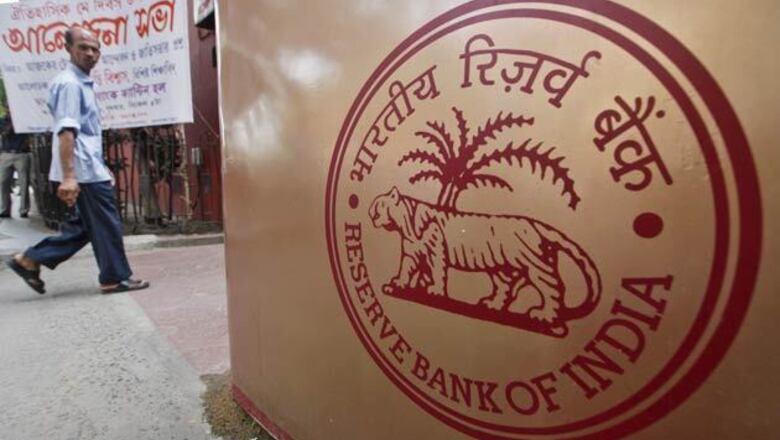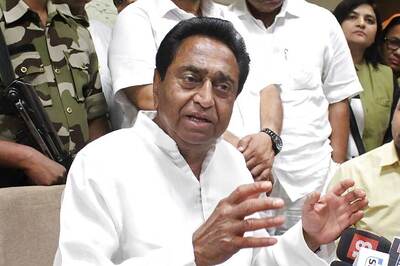
views
The Reserve Bank of India (RBI) could soon unveil a major change in monetary policy to explicitly make managing consumer inflation, rather than wholesale prices, its main objective.
The shift would be a significant one in a country that's long struggled to contain retail prices. It is expected as part of a deep review of monetary policy that RBI Raghuram Rajan ordered, after his September appointment, to sharpen the central bank's focus and increase its accountability.
The report, due by the end of the month, could also recommend making price stability the main objective of the central bank, while keeping but trimming the focus on its two other objectives: economic growth and financial stability.
If these changes are made, they would be the biggest overhaul at the RBI since 2011 when it adopted the repo rate as its main interest rate while intentionally keeping cash conditions tight to allow for more effective monetary policy.
The RBI is already making inflation a priority, having raised interest rates twice since September, but that is raising concerns about an economy growing at a decade-low pace and stuck in what some analysts call a stagflationary environment.
Historically, India's central bank has relied on the wholesale price index (WPI), which is based on the prices of traded goods and services and thus has a bias towards businesses.
In the coming report, "the main expectation is RBI will put in place an inflation-targeting framework, and the choice will be between WPI and CPI inflation and also between headline and core," said A. Prasanna, chief economist at ICICI Securities Primary Dealership.
"I expect the headline CPI to be the nominal anchor," he said.
The focus on consumer prices would come as annual retail inflation hit 11.24 percent in November, its highest level on record, as vegetable prices have surged because of India's poor infrastructure and transportation methods.
INDIA'S DIFFERENT FOCUS
Consumer prices are typically the key inflation gauge in most developed economies, but in India the focus has long been on wholesale prices because of the unreliable retail data.
However, CPI saw a major revamp in 2011, and Rajan has increasingly referred to it when publicly discussing monetary policy, signalling a shift in focus was already under way.
Under Rajan, the RBI has made fighting inflation a priority because of its pernicious impact on the poor. High consumer prices have also led Indians to prefer gold over other financial savings, leading to persistently strong imports that keep the current account balance in deficit.
The focus on inflation comes as India's growth remains well below the 9 percent annual levels seen in the second half of the previous decade, and well below what the government says is needed to reduce poverty and generate jobs.
Rajan has frequently described the trade-off between inflation and growth as a difficult one, although he has also said the two are not mutually exclusive.
After its interest rate hikes in September and October, the central surprised investors last week by keeping rates unchanged, citing in part the weak domestic economy.
AN EYE ON GROWTH
"Inflation targetting doesn't mean that you don't keep an eye on growth," Rajan said in a television interview with CNBC Awaaz on Monday.
"In an environment where growth is very weak, the weak growth is already doing some of your work for you, so you have to calibrate in a more careful way."
However, convincing lawmakers to change the RBI's objectives to focus on consumer inflation could be difficult as the fates of governments often hinge on whether they can ensure high growth and strong employment, but also low inflation.
The current government, led by the Congress party, faces national elections by May, and it has been drubbed in some recent state polls, partly due to high vegetable prices.
By statute, the RBI is not independent from the government, but its bureaucracy prizes autonomy, leading to previous clashes between the central bank and the finance ministry.
The RBI report is being compiled by a panel headed by Urjit Pael, its deputy governor for monetary policy. Rajan will decide on the review's final shape.



















Comments
0 comment